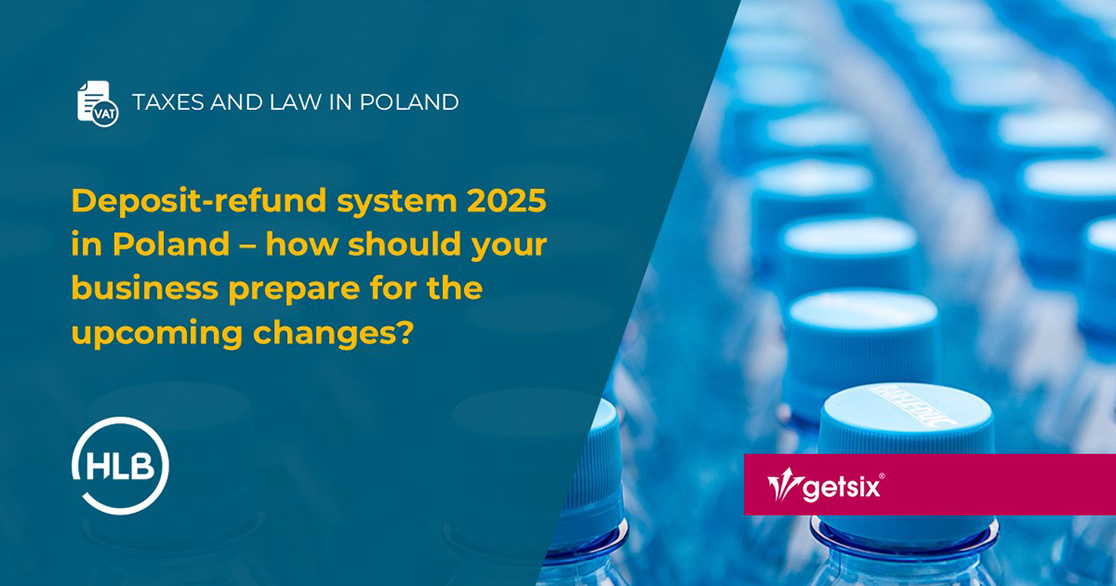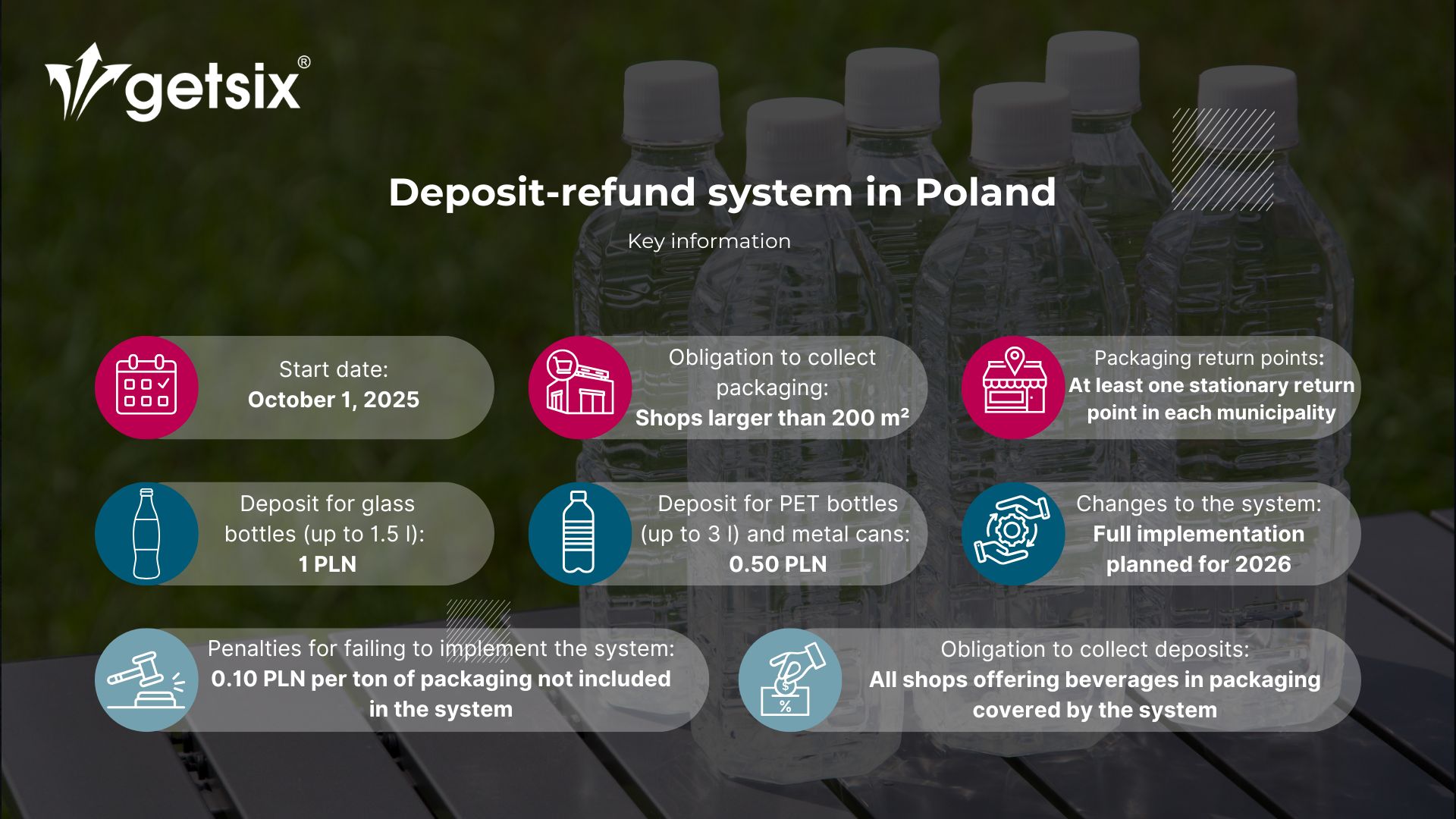Deposit-refund system 2025 in Poland – how should your business prepare for the upcoming changes?
18 June 2025
18 June 2025

On 1 October 2025, Poland will implement a deposit return system for selected beverage containers. This marks one of the most significant reforms in Poland’s waste management in recent years. While the primary goal is environmental – increasing recycling rates and reducing waste – the impact on businesses will be tangible: new obligations, logistical processes, and the need to adapt sales systems. Find out how the deposit system works and what actions businesses should take.
The deposit system will apply to all beverages sold in certain containers – plastic PET bottles up to 3 litres, metal cans up to 1 litre, and reusable glass bottles up to 1.5 litres. The aim is to achieve EU targets for separate collection – 77% already by 2025 and 90% from 2029.
The system will benefit the environment and consumers, but it will not be neutral for businesses. Obligations for beverage producers, retailers, and system operators are extensive: from organising collection and managing financial settlements to customer education. Regardless of company size, appropriate preparation will be crucial.

The system will apply to entities in Poland placing beverages on the market in packaging (producers, importers, distributors) as well as retail outlets. The scope of obligations varies depending on the business profile and shop size:
The deposit-refund system covers three packaging categories:
Deposit amounts:
For shops and beverage producers, the system means a range of new obligations:
Retailers:
Beverage producers/importers:
Unlike solutions in Germany or Scandinavian countries, the Polish system will be operated by several independent private entities. So far, permits have been granted to:
These operators will be responsible for collection, transport, recycling, deposit settlement, and building collection infrastructure at the local level.
Although deposits won’t be added to the product price and VAT will not be charged to customers, the system will require businesses to maintain accurate VAT records – particularly regarding unclaimed deposits. Producers and operators will be required to:
It is also essential to ensure properly worded agreements with system operators – since the law does not specify contract content, businesses must protect their interests independently.
The deposit-refund system presents both a challenge and an opportunity. Companies that successfully implement the new requirements can benefit from:
Conversely, lack of preparation may result in financial penalties, organisational disruption, and increased costs from 2026 onwards.
The deposit-refund system, set to launch in Poland on 1 October 2025, represents a major shift – not only environmentally, but also operationally and financially. It will impact producers, importers, and retailers alike – regardless of store size.
Implementing the system will require adjustments in sales, logistics, and record-keeping processes, signing agreements with operators, and ensuring proper product labelling. These changes should be seen not only as a compliance burden, but also as an opportunity – to strengthen brand image, enhance customer loyalty, and implement innovative packaging practices.
Failing to prepare may lead to higher fees and sanctions as early as 2026. It is therefore worth acting in advance and ensuring full compliance with the new regulations.
If you have any further questions or require additional information, please contact your business relationship person or use the enquiry form on the HLB Poland website.
***
Download the brochures providing general information and outlining the services that are offered by HLB member firms.
Learn moreClick below for more detailed information regarding population, major towns and cities, language, religion and holidays in Poland.
Learn more